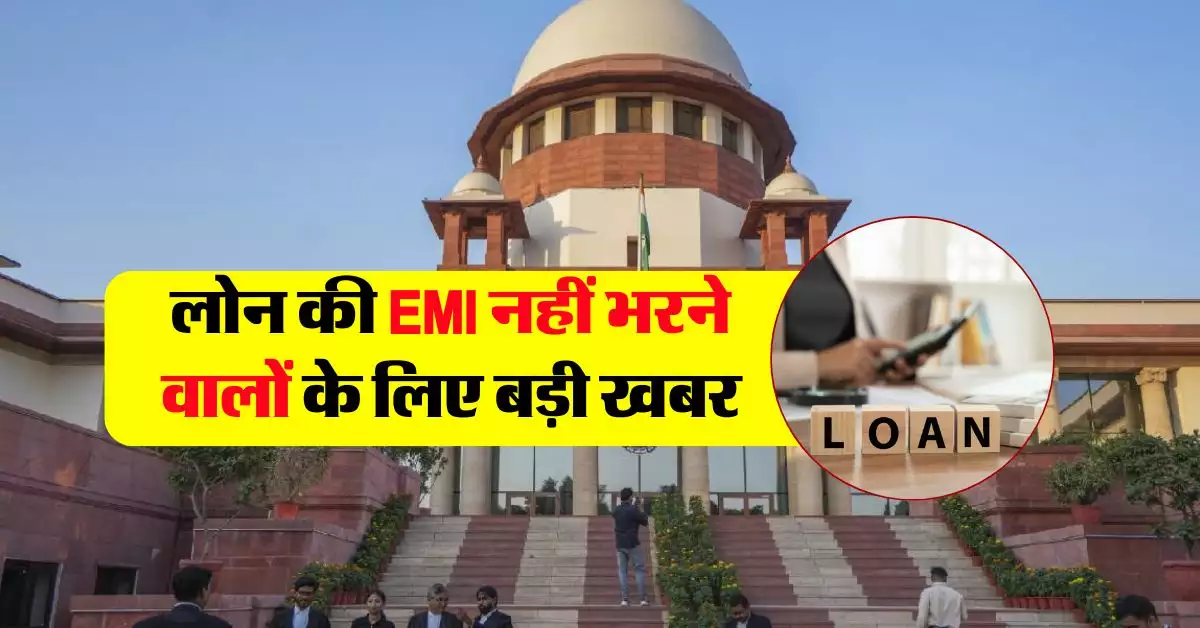Bank Loan Rules: Big News for Those Who Do Not Pay Loan EMI

Table of Contents
Latest Changes in Bank Loan Rules
Banks and financial institutions are constantly updating their policies to balance risk and customer needs. Recently, there have been significant changes in how banks handle loan defaults and missed EMI payments.
- Stricter Penalties for Defaulters: Banks are now imposing stricter penalties for missed payments, including higher late fees and interest rates.
- Extended Moratorium Periods: Some banks are offering extended moratorium periods for borrowers facing genuine financial hardships.
- Credit Score Impact: Missed EMIs can significantly damage your credit score.
- Legal Action for Chronic Defaulters: Banks are taking stricter legal action against chronic defaulters.
What Happens If You Miss an EMI Payment?
Missing an EMI payment isn’t just a minor inconvenience—it can have serious repercussions. Here’s what you need to know:
- Late Payment Fees: Banks typically charge a late payment fee, which can range from 2% to 5% of the EMI amount.
- Increased Interest Rates: Some banks may increase the interest rate on your loan if you miss multiple payments.
- Credit Score Damage: A single missed payment can lower your score by up to 100 points.
- Legal Consequences: Chronic defaulters may face asset seizure or court proceedings.
How to Manage Missed EMI Payments
If you’re struggling to make EMI payments, don’t panic. Here are some strategies to help you navigate the situation:
- Communicate with Your Bank: Contact your bank to discuss revised payment plans or moratoriums.
- Prioritize Your Loans: Focus on loans with the highest interest rates or severe consequences.
- Consider Loan Restructuring: Some banks offer loan restructuring options to make repayments more manageable.
- Seek Financial Counseling: A financial advisor can help you create a budget and explore debt consolidation options.
Case Study: How One Borrower Turned Things Around
Meet Ravi, a 35-year-old IT professional who lost his job during the pandemic and struggled to pay his home loan EMIs. Instead of ignoring the problem, Ravi reached out to his bank and explained his situation. The bank offered him a 6-month moratorium and restructured his loan, reducing his EMI amount by 20%. Ravi also took up freelance work to supplement his income. Today, he’s back on track and has even built an emergency fund to avoid future financial stress.
Conclusion
Missing loan EMIs can feel like a financial nightmare, but it’s not the end of the world. By understanding the latest bank loan rules, communicating with your lender, and taking proactive steps, you can navigate the challenges and protect your financial health. Remember, the key is to act quickly and seek help when needed.
FAQs
Q1: How many missed EMIs before a loan is considered a default?
A: Typically, a loan is considered a default if you miss 3-6 consecutive EMIs, but this varies by bank and loan type.
Q2: Can I negotiate with my bank after missing an EMI?
A: Yes, most banks are willing to negotiate. Contact them as soon as possible to discuss options like restructuring or a moratorium.
Q3: Will missing an EMI affect my ability to get future loans?
A: Yes, missed EMIs can lower your credit score, making it harder to secure loans or credit cards in the future.
Q4: What is a loan moratorium, and how does it work?
A: A loan moratorium allows you to temporarily pause EMI payments without penalties. Interest may still accrue during this period.
Q5: Can I prepay my loan to avoid missing EMIs?
A: Yes, prepaying your loan can reduce your EMI burden. However, check for prepayment penalties with your bank.

.jpg)




0 Comments